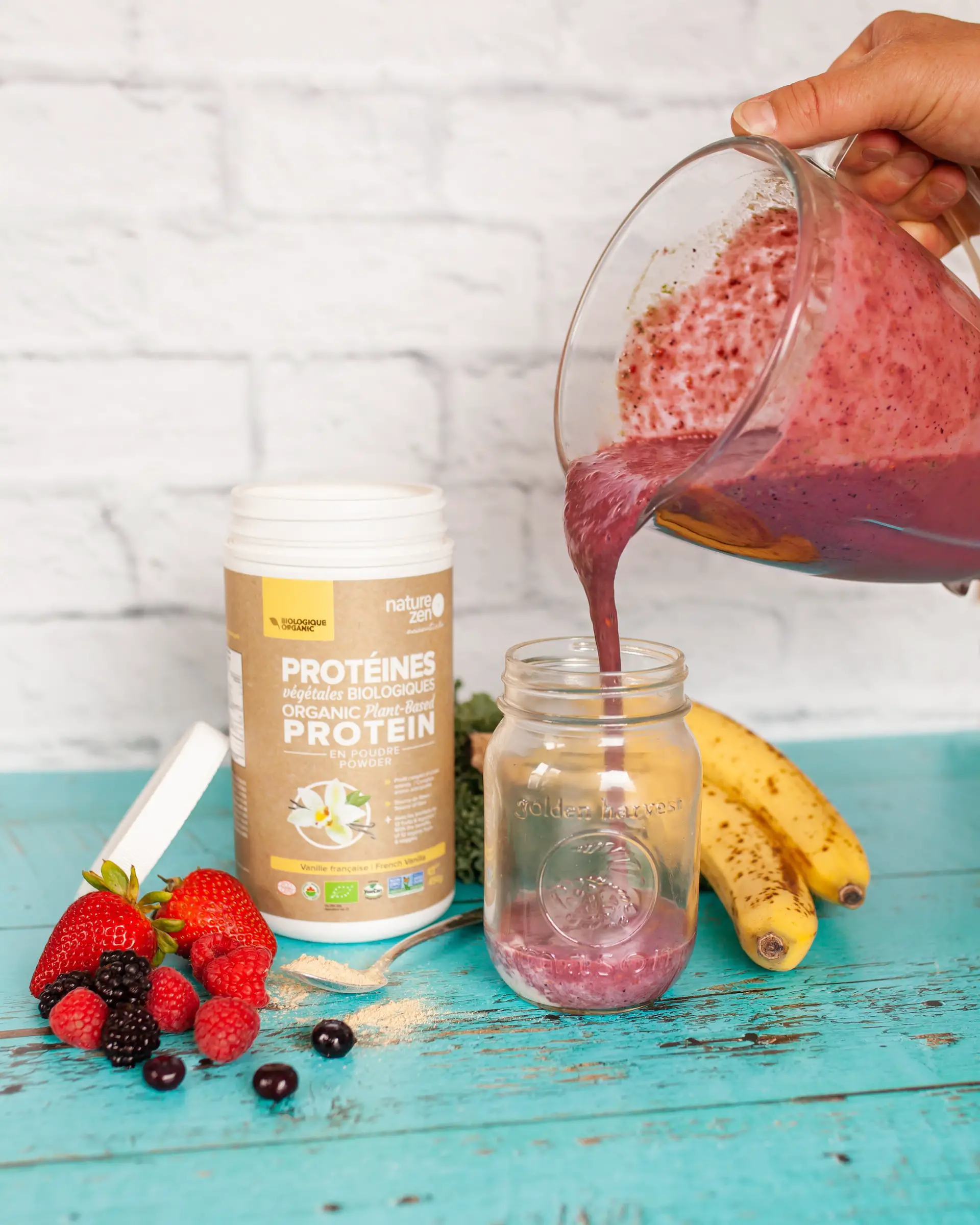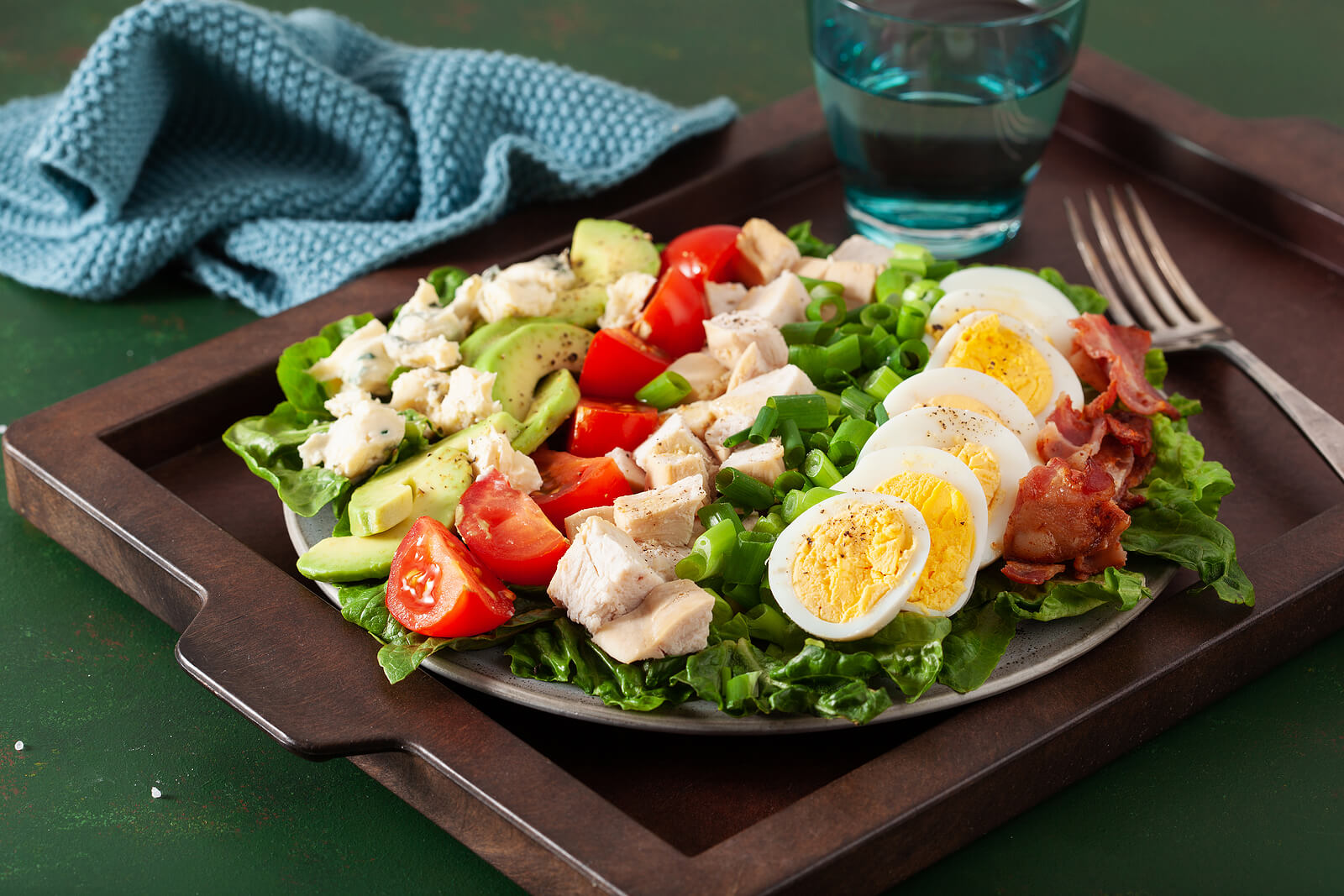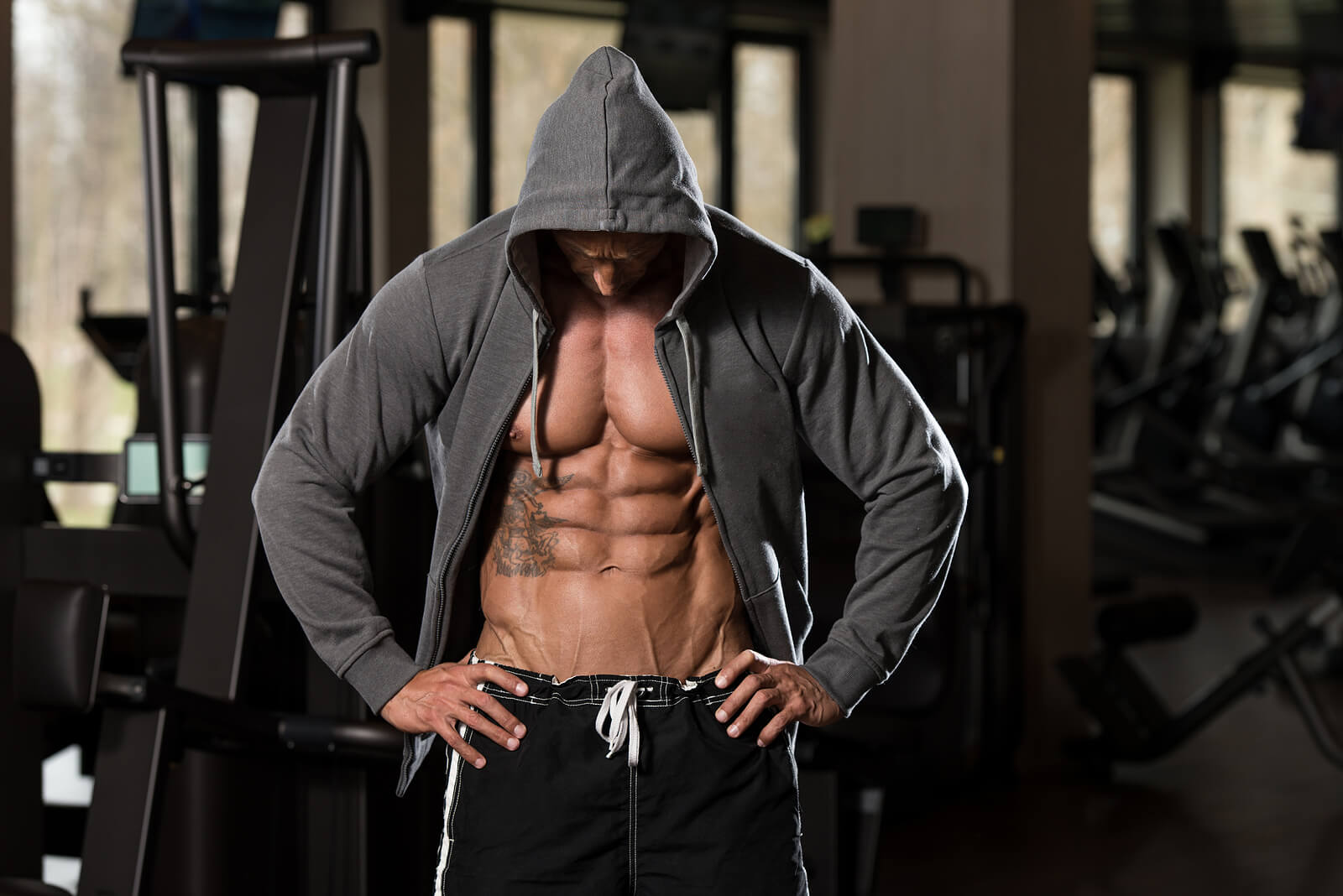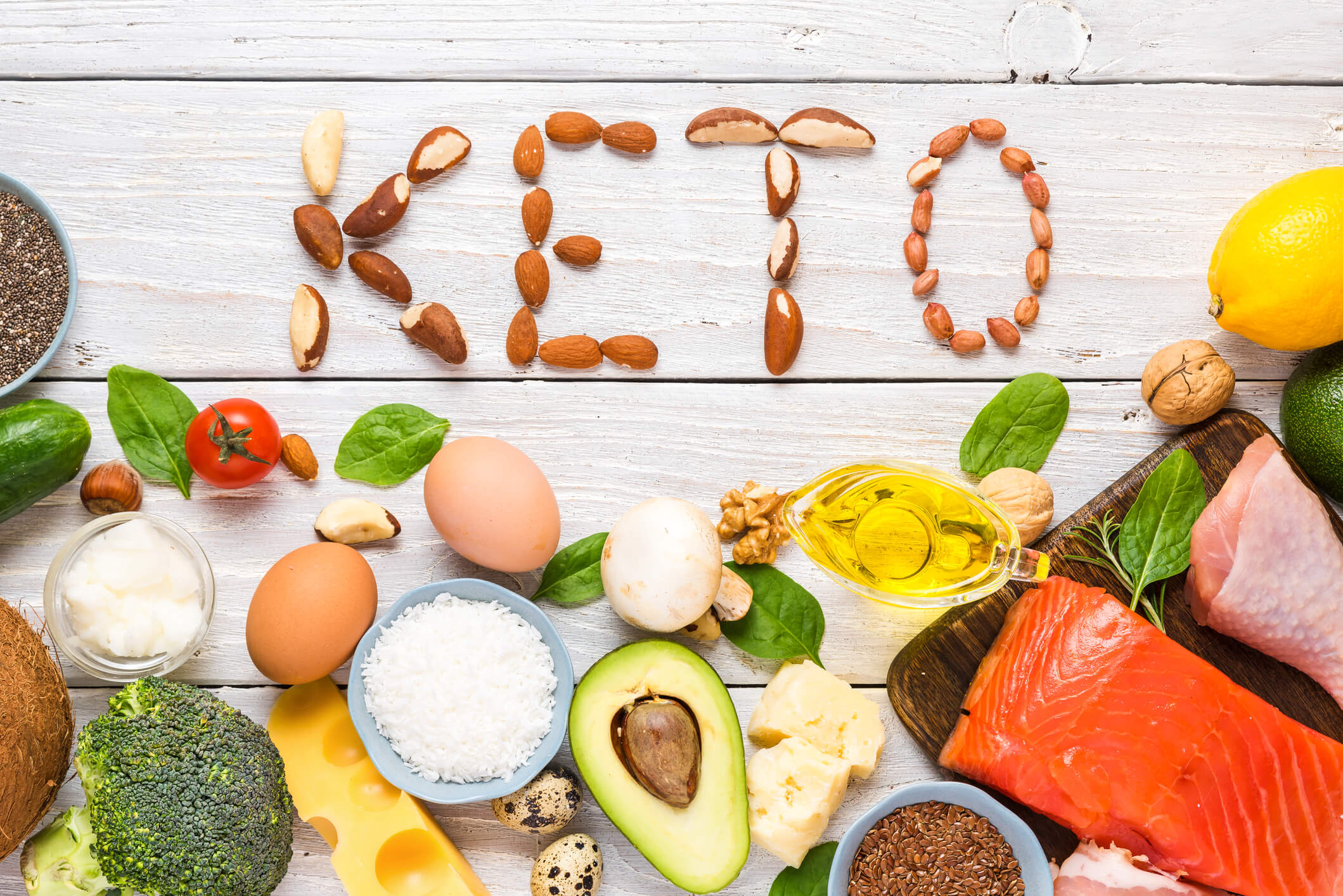If you’re looking to develop a chiseled six-pack, you know that nutrition plays a crucial role in achieving your goal. A balanced diet that is rich in protein and low in calories is essential to building muscle and shedding fat. Protein powders are a popular supplement choice for those looking to increase their protein intake, but with so many options on the market, it can be challenging to determine which protein powder is best for six-pack abs.
When it comes to selecting a protein powder, it’s essential to consider your individual goals and dietary needs. There are several types of protein powders, including whey, casein, soy, and pea protein. Whey protein is the most popular choice among fitness enthusiasts due to its high bioavailability and fast absorption rate.
However, if you’re lactose intolerant or vegan, soy or pea protein may be a better option for you. Additionally, you should consider the quality of the protein powder you’re purchasing. Look for products that are free from artificial sweeteners, fillers, and other additives that can hinder your progress.
Understanding the Role of Protein in Muscle Development
If you want to develop a chiseled six-pack, you need to understand the role of protein in muscle development. Protein is essential for building and repairing muscle tissue. When you exercise, you create micro-tears in your muscle fibers. Protein helps repair these tears, which leads to muscle growth and increased strength.
Protein synthesis is the process by which your body builds new muscle tissue. To promote protein synthesis, you need to consume enough protein. The amount of protein you need depends on your body weight, activity level, and fitness goals. As a general rule, aim to consume 1 gram of protein per pound of body weight per day.
Amino acids are the building blocks of protein. There are 20 different amino acids, and your body needs all of them to build muscle tissue. Nine of these amino acids are essential, which means your body can’t produce them on its own. You need to get them from your diet.
Branched-chain amino acids (BCAAs) are a specific type of amino acid that has been shown to promote muscle growth. Leucine, in particular, is a powerful stimulator of protein synthesis. Some studies have suggested that supplementing with BCAAs can help increase muscle mass and improve exercise performance.
When it comes to choosing a protein powder, there are several options available. Whey protein is one of the most popular choices, as it’s a complete protein that’s easily absorbed by the body. Casein protein is another option, as it’s a slow-digesting protein that can provide a steady stream of amino acids to your muscles over several hours. Plant-based protein powders, such as pea protein or soy protein, are also available for those who prefer a vegan or vegetarian option.
In summary, protein plays a crucial role in muscle development, and consuming enough protein is essential if you want to develop a chiseled six-pack. Aim to consume 1 gram of protein per pound of body weight per day, and consider supplementing with BCAAs to further promote muscle growth. When choosing a protein powder, consider your dietary preferences and fitness goals to determine which option is best for you.
The Relevance of Protein Powder in Achieving Six-Pack Abs
If you’re looking to achieve six-pack abs, then you already know that a healthy diet and regular exercise are crucial. But did you know that protein powder can also play an important role in helping you reach your goal?
Protein is essential for building and repairing muscle tissue, and it’s especially important for those looking to build a lean, toned physique. By supplementing your diet with protein powder, you can ensure that your body is getting the nutrients it needs to build and maintain muscle mass.
When it comes to choosing a protein powder, there are several options to consider. Whey protein is one of the most popular choices, as it’s easily digestible and contains all of the essential amino acids your body needs to build muscle. Casein protein is another option, which is slower digesting and can provide a steady stream of amino acids to your muscles over a longer period of time.
Other protein powders, such as soy, pea, and hemp, are also available and can be a good option for those with dietary restrictions or preferences. It’s important to choose a protein powder that fits your individual needs and goals.
In addition to providing your body with the nutrients it needs to build muscle, protein powder can also help you feel full and satisfied, which can be beneficial if you’re trying to lose weight or reduce your overall calorie intake.
Overall, protein powder can be a valuable tool in achieving six-pack abs. By supplementing your diet with protein powder and combining it with a healthy diet and regular exercise, you can give your body the support it needs to build and maintain lean muscle mass.
Different Types of Protein Powders and Their Benefits
When it comes to protein powder, there are several different types to choose from, each with its own unique set of benefits. Here are four of the most popular types of protein powders and what makes them stand out:
Whey Protein
Whey protein is one of the most popular types of protein powder, and for good reason. It’s a complete protein, meaning it contains all nine essential amino acids that your body can’t produce on its own. Whey protein is also quickly absorbed by the body, making it an ideal choice for post-workout recovery.
Casein
Casein is another type of protein powder that’s derived from milk. Unlike whey protein, casein is slowly absorbed by the body, making it a great choice for a bedtime snack or meal replacement. It’s also high in calcium, which is important for bone health.
Whey Isolate
Whey isolate is a more refined form of whey protein, with most of the fat and lactose removed. This makes it a great choice for people who are lactose intolerant or trying to limit their fat intake. Whey isolate is also quickly absorbed by the body, making it a great choice for post-workout recovery.
Isoflex
Isoflex is a type of protein powder that’s made from whey protein isolate. It’s one of the purest forms of protein powder available, with up to 90% protein content. Isoflex is also quickly absorbed by the body, making it a great choice for post-workout recovery.
No matter which type of protein powder you choose, make sure to read the label carefully and choose a high-quality product that’s free from additives and artificial sweeteners. And remember, while protein powder can be a helpful addition to your diet, it’s not a magic solution for getting six-pack abs. A balanced diet and regular exercise are still the most important factors for achieving your fitness goals.
The Importance of Diet and Nutrition
When it comes to achieving six-pack abs, diet and nutrition are just as important as exercise. Without proper nutrition, your body won’t have the fuel it needs to build muscle and burn fat. Here are some key factors to keep in mind when planning your diet:
Calories
To build six-pack abs, you need to be in a calorie deficit, which means you’re burning more calories than you’re consuming. However, it’s important to not cut your calories too drastically, as this can slow down your metabolism and make it harder to lose weight. Aim for a moderate calorie deficit of around 250-500 calories per day.
Carbs and Fiber
Carbohydrates are an important source of energy for your body, but not all carbs are created equal. Focus on eating complex carbohydrates from sources like whole grains, fruits, and vegetables, which are high in fiber and will keep you feeling full for longer. Avoid simple carbs like sugar and refined grains, which can cause blood sugar spikes and crashes.
Healthy Fats
Contrary to popular belief, fat is not the enemy when it comes to six-pack abs. In fact, healthy fats like those found in nuts, seeds, and fatty fish are essential for building muscle and maintaining good health. Aim to get around 20-30% of your daily calories from healthy fats.
Vitamins and Minerals
Getting enough vitamins and minerals is essential for overall health and wellbeing, as well as for building six-pack abs. Focus on eating a variety of whole foods like fruits, vegetables, nuts, and seeds to ensure you’re getting a wide range of nutrients. In particular, pay attention to getting enough iron, which is important for muscle growth and recovery.
Protein Powder
While it’s possible to get enough protein from whole foods, many people find it helpful to supplement with protein powder. When choosing a protein powder, look for one that is high-quality and free from additives and fillers. Whey protein is a popular choice for building muscle, but if you’re lactose intolerant or vegan, there are plenty of other options available like pea protein or soy protein.
By focusing on a diet that is high in complex carbohydrates, healthy fats, and protein, and rich in vitamins and minerals, you’ll be giving your body the fuel it needs to build six-pack abs. Remember to also pay attention to your calorie intake and make sure you’re in a moderate calorie deficit to support weight loss.
Role of Exercise in Achieving Six-Pack Abs
When it comes to achieving six-pack abs, exercise plays a crucial role. While protein powder can help you build muscle and reduce body fat, it’s not a magic solution. You need to put in the work to see results.
Resistance training is one of the most effective ways to build muscle and burn fat. By lifting weights or using resistance bands, you can target your core muscles and develop the definition you’re after. Compound exercises like squats and deadlifts can also engage your core while working other muscle groups.
Cardiovascular exercise is also important for burning calories and reducing body fat. High-intensity interval training (HIIT) has been shown to be particularly effective for fat loss, as it can boost your metabolism and burn calories long after your workout is over.
Of course, you can’t forget about your core workout. While crunches and sit-ups are popular exercises, they’re not the only way to work your abs. Planks, Russian twists, and bicycle crunches are just a few examples of other exercises that can engage your core muscles.
In addition to specific exercises, it’s important to stay active throughout the day. Even small amounts of physical activity can add up and help you burn more calories. Consider taking the stairs instead of the elevator, going for a walk during your lunch break, or doing some stretching while you watch TV.
Overall, a well-rounded core routine that includes resistance training, cardio, and a variety of core exercises can help you achieve six-pack abs. Remember to also prioritize your nutrition and recovery, as these factors can also play a significant role in your success.
Understanding Body Fat and Its Impact on Six-Pack Abs
To achieve a chiseled six-pack, it’s important to understand the role of body fat. Body fat is the adipose tissue found in various parts of your body, including your abdomen. While some amount of body fat is essential for the proper functioning of your body, excess body fat can lead to obesity, which is a major risk factor for several health problems.
When it comes to six-pack abs, body fat percentage plays a crucial role. To achieve a visible six-pack, you need to have a low body fat percentage. For men, a body fat percentage of around 6-13% is considered ideal for a six-pack, while for women, it’s around 16-25%.
Belly fat, also known as visceral fat, is particularly harmful as it’s associated with several health problems such as type 2 diabetes, heart disease, and certain cancers. Belly fat is also harder to lose than other types of body fat.
To reduce body fat and achieve a six-pack, you need to create a caloric deficit, which means consuming fewer calories than you burn. This can be achieved through a combination of a healthy diet and regular exercise. Focus on eating whole, nutrient-dense foods and avoid processed and high-calorie foods. Incorporate strength training exercises and high-intensity interval training (HIIT) to help burn fat and build muscle.
While protein powder can be a useful supplement to support your fitness goals, it’s important to note that it’s not a magic solution for six-pack abs. Protein powder can help you meet your daily protein requirements, which is essential for building muscle and aiding in fat loss. However, it’s important to choose a high-quality protein powder that’s low in calories and sugar.
In summary, achieving a six-pack requires a combination of a healthy diet, regular exercise, and a low body fat percentage. Understanding the impact of body fat on your fitness goals can help you make informed decisions about your diet and exercise routine.
The Role of Supplements in Achieving Six-Pack Abs
When it comes to achieving six-pack abs, supplements can play a role in helping you reach your goals. However, it’s important to note that supplements should not be relied upon as a magic solution. Instead, they should be used in conjunction with a healthy diet and exercise routine.
One supplement that may be beneficial for those looking to achieve six-pack abs is protein powder. Protein is essential for building and repairing muscle tissue, which is crucial for developing a six-pack. Whey protein is a popular choice as it is quickly absorbed by the body and contains all of the essential amino acids needed for muscle growth. However, other protein powders such as casein or plant-based options like pea or soy can also be effective.
Another supplement that may be helpful for achieving six-pack abs is CLA, or conjugated linoleic acid. CLA is a type of fatty acid that has been shown to help reduce body fat while preserving muscle mass, making it an ideal supplement for those looking to get lean and toned. However, it’s important to note that CLA is not a magic solution and should be used in conjunction with a healthy diet and exercise routine.
Branched-chain amino acids (BCAAs) are another supplement that may be beneficial for those looking to achieve six-pack abs. BCAAs are essential amino acids that help to stimulate muscle protein synthesis, which is crucial for building and repairing muscle tissue. Additionally, BCAAs can help to reduce muscle soreness and fatigue, allowing you to train harder and more frequently.
While supplements can be helpful for achieving six-pack abs, it’s important to choose high-quality supplements from reputable brands. Additionally, it’s important to consult with a healthcare professional before starting any new supplement regimen.
In addition to protein powder, CLA, and BCAAs, there are other supplements that may be helpful for achieving six-pack abs. Fat burners, appetite suppressants, and antioxidants such as green tea extract may all have a role to play in helping you reach your goals. However, it’s important to do your research and choose supplements that are safe and effective.
Other Factors Influencing Six-Pack Abs
While protein powder is an important factor in developing six-pack abs, it is not the only factor. There are several other factors that can influence your progress toward achieving a chiseled midsection.
Sleep and Resting Metabolic Rate
Getting enough sleep is essential for muscle growth and recovery. Lack of sleep can lead to a decrease in resting metabolic rate, which can negatively affect your body’s ability to burn calories. Aim for at least 7-8 hours of sleep per night to ensure adequate recovery time for your muscles.
Metabolism and Endurance
Your metabolism plays a crucial role in your ability to burn fat and achieve a lean physique. High-intensity interval training (HIIT) has been shown to increase metabolism and endurance, leading to greater fat loss and muscle definition. Incorporating HIIT into your workout routine can help you achieve your six-pack goals.
Energy Level and Caffeine
Maintaining high energy levels throughout the day is important for staying motivated and focused on your fitness goals. Caffeine has been shown to increase energy levels and improve exercise performance, making it a popular pre-workout supplement. However, it is important to consume caffeine in moderation and avoid consuming it too close to bedtime.
Appetite and Insulin Sensitivity
Controlling your appetite and maintaining insulin sensitivity are important factors in achieving six-pack abs. Eating a diet high in protein and fiber can help you feel full and satisfied, while also improving insulin sensitivity. Avoiding sugary and processed foods can also help control appetite and improve insulin sensitivity.
Heart Rate and Cardiovascular Health
Maintaining a healthy heart rate and cardiovascular health is important for overall health and fitness. Cardiovascular exercise, such as running or cycling, can help improve heart health and burn calories, leading to greater fat loss and muscle definition. Incorporating cardiovascular exercise into your workout routine can help you achieve your six-pack goals.
Remember, while protein powder is an important factor in achieving six-pack abs, it is not the only factor. Incorporating these other factors into your fitness routine can help you achieve your goals and maintain a healthy and fit body.
Quality, Taste, and Price Considerations
When it comes to choosing the best protein powder for your six-pack abs, there are a few key factors to consider: quality, taste, and price.
Quality: High-quality protein powders are essential for building lean muscle mass and achieving your fitness goals. Look for protein powders that are made from high-quality sources, such as whey protein isolate or hydrolyzed whey protein. These types of protein powders are more easily absorbed by your body and provide all the essential amino acids your muscles need to grow and repair.
Taste: Let’s face it, taste matters. If your protein powder doesn’t taste good, you’re less likely to use it consistently. Look for protein powders that come in a variety of flavors, such as chocolate, vanilla, and strawberry. Some protein powders also come in unflavored varieties, which can be a good option if you prefer to mix your protein powder with other ingredients like fruits or vegetables.
Price: Price is another important consideration when choosing a protein powder. While high-quality protein powders can be more expensive, there are still plenty of affordable options available. Look for protein powders that offer a good balance of quality and price, and consider buying in bulk to save money in the long run.
When it comes to quality, it’s important to read the label and check for any added sugars or artificial sweeteners. These ingredients can be harmful to your health and can sabotage your fitness goals. Look for protein powders that are free from added sugars and artificial sweeteners, and opt for natural sweeteners like stevia or monk fruit instead.
In summary, when choosing the best protein powder for your six-pack abs, consider the quality of the protein source, the taste of the powder, and the price. Look for high-quality protein powders that are free from added sugars and artificial sweeteners, and choose a flavor that you enjoy. And remember, consistency is key when it comes to achieving your fitness goals, so choose a protein powder that you’ll actually look forward to drinking every day.
Creating a Comprehensive Strategy for Six-Pack Abs
Achieving six-pack abs requires more than just doing sit-ups and crunches. It requires a comprehensive strategy that includes proper nutrition, exercise, and recovery. Here are some tips to help you create a plan that works for you.
Nutrition
To develop six-pack abs, you need to reduce your body fat percentage. This means you need to consume fewer calories than you burn. A healthy diet that is rich in whole foods, lean protein, and healthy fats can help you achieve this goal.
Protein powder can be a great addition to your diet, but it’s important to choose the right one. Look for a protein powder that is low in lactose and fat, and high in essential amino acids. Whey protein isolate is a good option for those who are lactose intolerant, while casein protein is a slow-digesting protein that can help with recovery.
Exercise
A combination of heavy lifting and cardio can help you build lean muscle mass and burn fat. Warm-up properly before each workout to prevent injury and improve athletic performance.
For your abs specifically, focus on exercises that target the rectus abdominis, such as sit-ups, planks, and crunches. However, it’s important to remember that spot reduction is not possible. You need to reduce overall body fat to see your abs.
Recovery
Recovery is an essential part of any fitness plan. Make sure to give your body enough rest between workouts to allow for proper recovery. This can include active recovery, such as stretching or yoga, as well as getting enough sleep and staying hydrated.
In addition to rest, make sure to fuel your body properly with the right nutrients. Fatty acids, such as omega-3s, can help reduce inflammation and improve recovery.
Macros and Calorie Intake
Tracking your macros and calorie intake can help you achieve your fitness goals. To build muscle and burn fat, you need to consume enough protein, carbohydrates, and healthy fats. Use a macro calculator to determine your daily needs and adjust your diet accordingly.
Low-carb diets can be effective for reducing body fat, but it’s important to make sure you’re still getting enough nutrients. Consult with a registered dietitian to make sure you’re on the right track.
Conclusion
Creating a comprehensive strategy for six-pack abs requires a combination of proper nutrition, exercise, and recovery. Choose the right protein powder, focus on exercises that target the rectus abdominis, and make sure to give your body enough rest and nutrients to recover properly. With dedication and consistency, you can achieve your fitness goals.






Leave a Reply